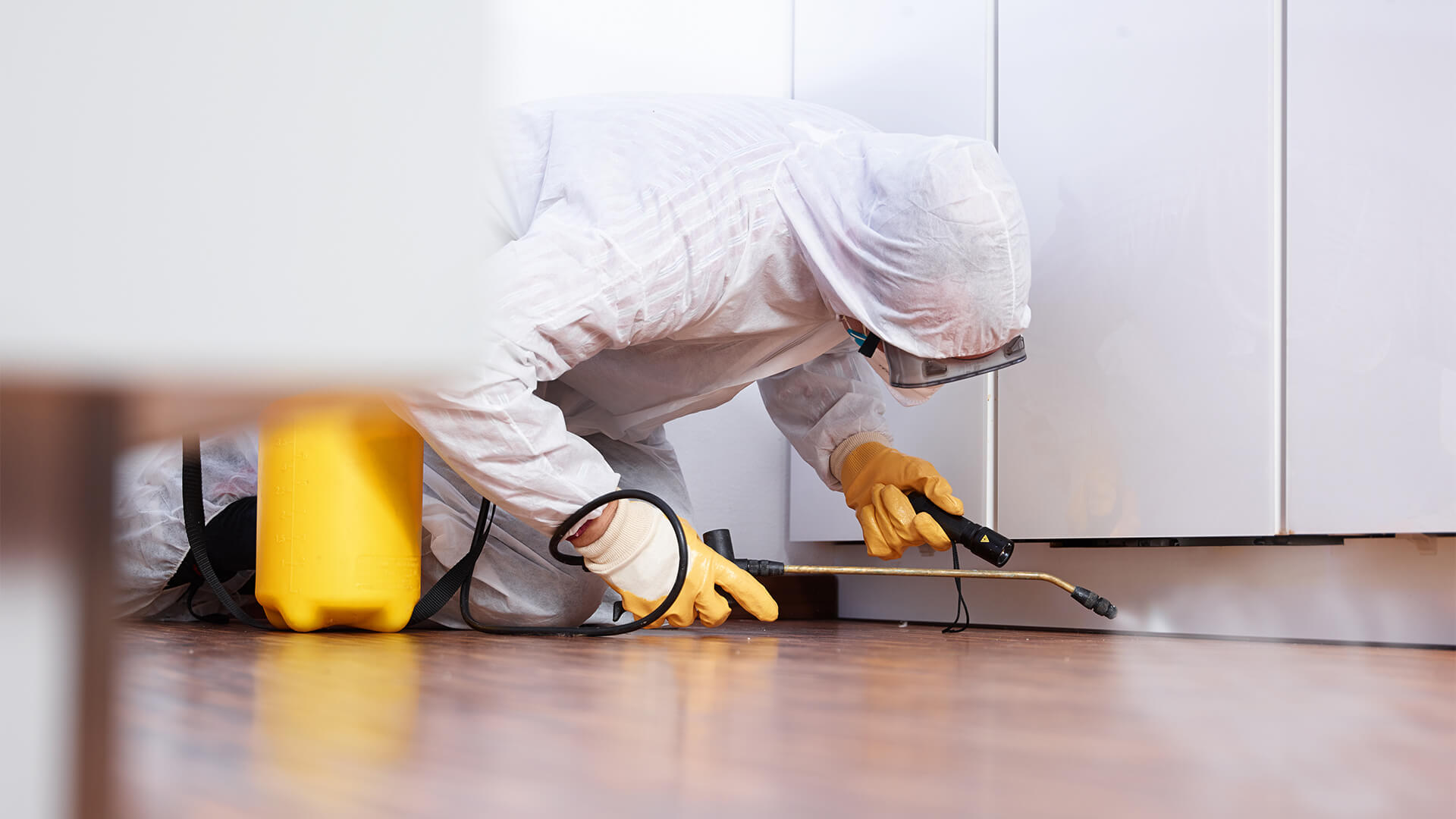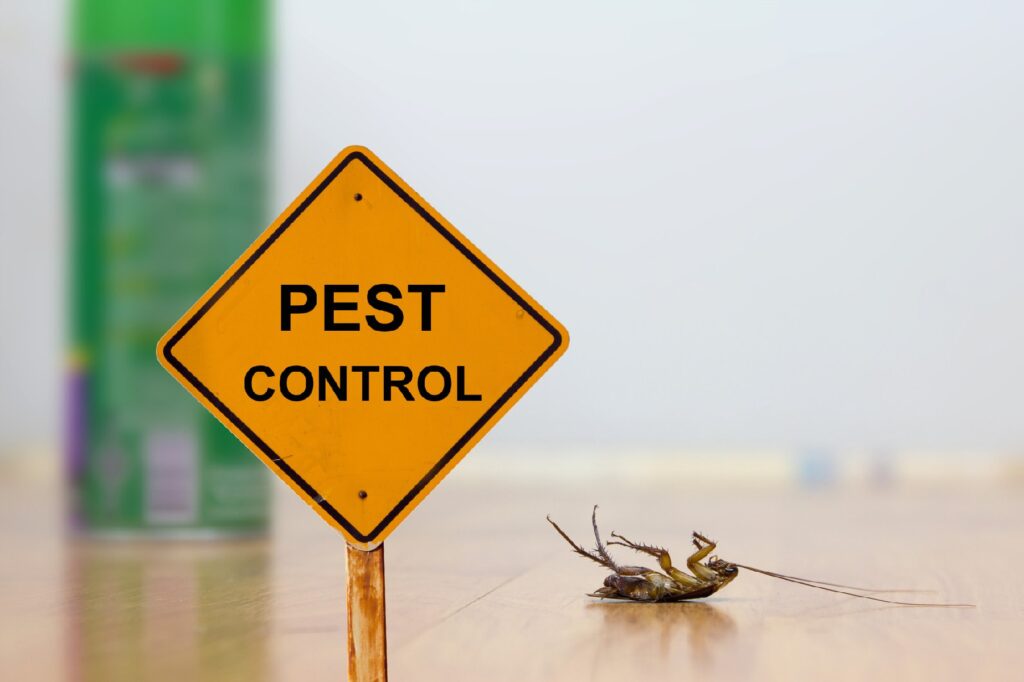Safe and Reliable Parasite Control for Lasting Protection
The value of trusted and safe bug control can not be overemphasized, specifically in a period where environmental worries are vital. Reliable insect management requires a complex technique that balances environmental stability with the demand for effective parasite suppression. By checking out eco-friendly services and incorporated pest administration strategies, property owners can attain enduring protection against intrusive varieties while protecting helpful environments. However, the nuances of these approaches might not be instantly clear, triggering a closer assessment of the techniques that can lead to sustainable bug control end results. What steps can be required to make certain both security and effectiveness in bug administration?
Comprehending Bug Control Techniques
Insect control encompasses a range of techniques aimed at managing and eradicating undesirable bugs and rats that can intimidate both health and wellness and property. Recognizing these techniques is important for efficient bug management.
The primary groups of insect control methods include mechanical, biological, and chemical strategies. Mechanical approaches include physical barriers and catches to stop parasite entrance and capture undesirable types. For example, using screens on windows or utilizing sticky traps can significantly minimize insect populations without presenting hazardous materials.

Chemical parasite control is frequently the most acknowledged approach, making use of chemicals to eliminate bugs. These chemicals can be reliable yet must be used with caution to stay clear of unfavorable impacts on non-target varieties and the setting.
Advantages of Eco-Friendly Solutions
Just how can environment-friendly services transform parasite control methods? The adoption of eco-friendly parasite control techniques provides countless benefits, significantly enhancing the efficiency and safety of parasite administration.

Another advantage is the favorable influence on local biodiversity. Green solutions are created to target details insects while protecting advantageous pests and wildlife, promoting a balanced ecological community. This approach aligns with the growing consumer demand for lasting practices, enhancing the online reputation of bug control carriers.
Integrated Pest Administration Methods
The execution of eco-friendly solutions naturally results in the adoption of Integrated Insect Administration (IPM) methods, which additionally boost insect control effectiveness. IPM is an all natural strategy that incorporates numerous methods to take care of parasite populaces while lessening ecological effect. This method highlights using organic, social, mechanical, and chemical controls, making sure a sustainable and balanced approach of bug monitoring.
One essential element of IPM is the complete evaluation of insect activity and ecological problems. By monitoring parasite populaces and determining their life cycles, practitioners can apply targeted interventions that interrupt the pest's environment or lifecycle, minimizing reliance on chemical pesticides. Additionally, social practices such as crop turning and environment control can considerably diminish parasite facility and reproduction.
Another critical part is the use of organic control representatives, such as advantageous pests or bacteria, which can naturally reduce pest populaces. When chemical applications are required, IPM visit our website focuses on using low-risk chemicals and applies them precisely, minimizing direct exposure to non-target organisms and human beings.
Incorporating IPM techniques not just enhances parasite control efficiency yet likewise advertises a more secure environment, aligning with the expanding need for sustainable techniques in pest monitoring.
Safe Practices for Property Owners
Comprehending the importance of risk-free practices in parasite control can empower home owners to effectively take care of insect issues while safeguarding their health and the setting. Carrying out precautionary actions and non-toxic methods is vital in minimizing exposure to hazardous chemicals.
House owners need to initially analyze their setting for conditions that attract pests, such as standing clutter, water, and food waste. Routinely cleansing and sealing entry points can prevent parasites from invading the home. Utilizing natural deterrents, such as necessary oils or diatomaceous earth, can give efficient alternatives to chemical pesticides.
When chemical therapies are required, house owners ought to go with products that are especially identified as risk-free for domestic use. It is vital to follow application standards diligently to stay clear of too much exposure. Using targeted therapies in areas where pests are recognized, rather than covering spraying, can significantly lower chemical use.
Last but not least, keeping open communication with pest control experts is important. Home owners must ask about the security of top article products made use of and request eco-friendly choices whenever possible. By embracing these secure techniques, house owners can create a healthier living setting while efficiently taking care of pest problems.

Tips for Long-Term Protection
Establishing a parasite management approach that highlights lasting defense can significantly improve the performance of the try this web-site safe methods formerly talked about. To attain this, house owners ought to execute regular examinations of their residential or commercial property, focusing on concealed locations such as attics, basements, and crawl areas. Early detection of bug task is essential in stopping problems from holding.
In addition, maintaining a clean environment is essential. This consists of proper food storage, promptly cleaning spills, and routinely throwing away rubbish. These techniques decrease attractants that draw insects into the home. Additionally, sealing entry points, such as cracks around doors and windows, can efficiently block potential pest access.
Landscaping ought to additionally be taken into consideration; keeping plants trimmed and maintaining a range in between greenery and the home minimizes concealing areas for pests. Making use of natural deterrents, such as essential oils or diatomaceous planet, can even more discourage problems without resorting to rough chemicals.
Finally, collaborating with a professional pest control solution for periodic examinations can offer an added layer of safety. These experts can use customized recommendations and progressed treatments, making certain that your home remains shielded against bugs in the long-term.
Conclusion
To conclude, safe and dependable pest control needs a multifaceted method that highlights eco-friendly techniques and incorporated pest administration. By executing all-natural deterrents, conducting routine inspections, and preserving correct hygiene, property owners can considerably lower pest populations while securing beneficial insects and the atmosphere. Partnership with specialist pest control services enhances the efficiency of these methods, making certain customized solutions that supply lasting protection and comfort against future invasions.
Efficient bug administration needs a multifaceted method that balances ecological integrity with the need for effective insect suppression. The adoption of environmentally friendly parasite control approaches supplies countless advantages, substantially improving the efficiency and security of insect monitoring.The execution of green options naturally leads to the adoption of Integrated Pest Management (IPM) approaches, which better boost parasite control efficiency. exterminator coquitlam. By monitoring parasite populaces and identifying their life cycles, practitioners can apply targeted treatments that disrupt the pest's environment or lifecycle, minimizing reliance on chemical pesticides.In conclusion, trustworthy and safe insect control requires a complex technique that emphasizes green approaches and integrated parasite administration